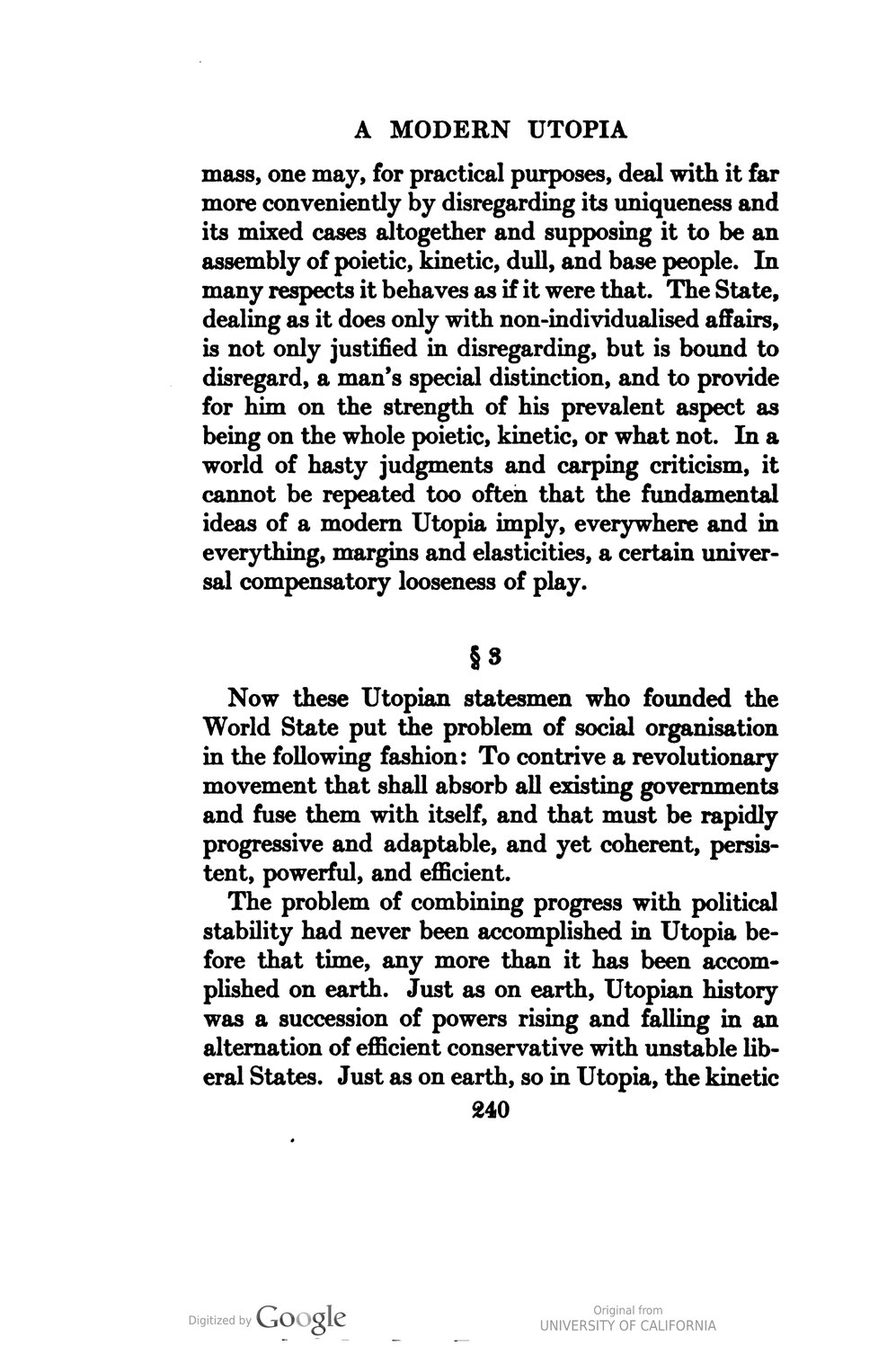A MODERN UTOPIA
mass, one may, for practical purposes, deal with it far more conveniently by disregarding its uniqueness and its mixed cases altogether and supposing it to be an assembly of poietic, kinetic, dull, and base people. In many respects it behaves as if it were that. The State, dealing as it does only with non-individualised affairs, is not only justified in disregarding, but is bound to disregard, a man's special distinction, and to provide for him on the strength of his prevalent aspect as being on the whole poietic, kinetic, or what not. In a world of hasty judgments and carping criticism, it cannot be repeated too often that the fundamental ideas of a modern Utopia imply, everywhere and in everything, margins and elasticities, a certain universal compensatory looseness of play.
§ 3
Now these Utopian statesmen who founded the World State put the problem of social organisation in the following fashion: To contrive a revolutionary movement that shall absorb all existing governments and fuse them with itself, and that must be rapidly progressive and adaptable, and yet coherent, persistent, powerful, and efficient.
The problem of combining progress with political stability had never been accomplished in Utopia before that time, any more than it has been accomplished on earth. Just as on earth, Utopian history was a succession of powers rising and falling in an alternation of efficient conservative with unstable liberal States. Just as on earth, so in Utopia, the kinetic
240
